Teaching birds to help us with recycling!
A very interesting approach!
Who knew birds would be absolutely crushing it in the recycling game? If they can do it, so can you!
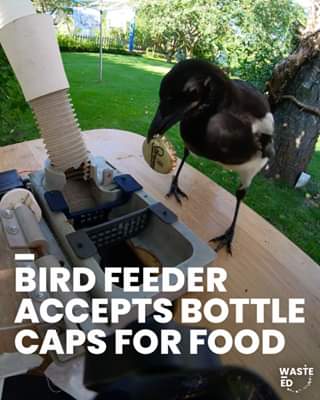
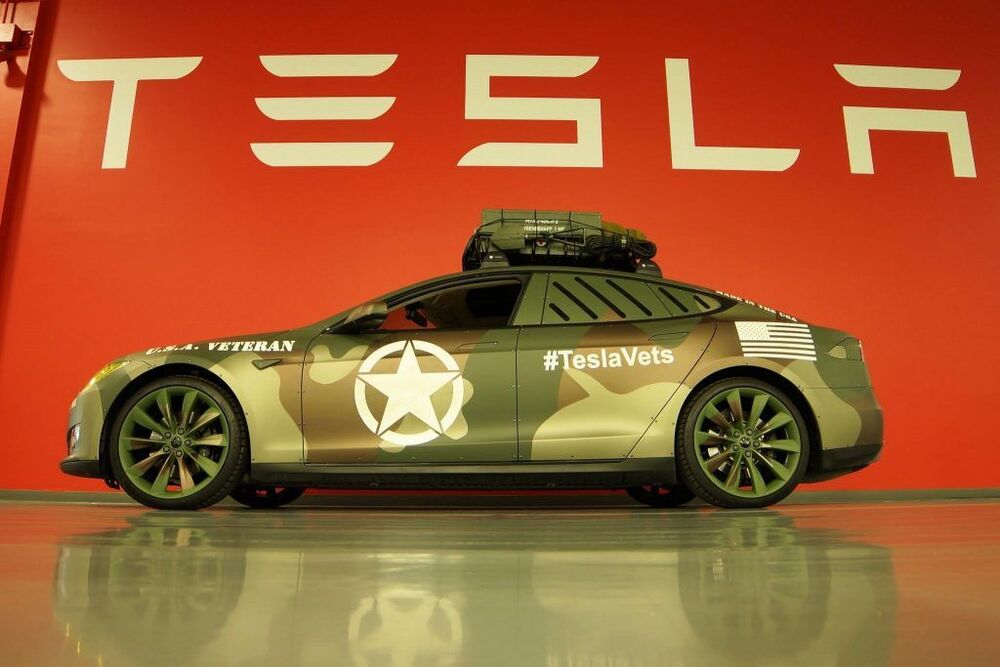
On this Veteran’s Day 2020, Teslarati thanks all of the heroes who have sacrificed their freedoms to protect ours. In the theme of the day, we decided to take a look back at how Tesla has honored the heroes who have served in the military over the years. From camo-inspired EVs to Veteran’s hiring programs, the electric automaker has portrayed an appreciation for those who fought to keep us free.
2014: The Camo Model S and a heartfelt “Thank You”
In 2014, Tesla tweeted several photographs of a military-inspired Model S, dawning images of American flags and spelling the words “U.S.A. Veteran,” “Made in the USA,” and “#TeslaVets.” The camo Model S hasn’t made an appearance since then. However, the message is still present on Tesla’s official Twitter page, reminding everyone that the company is overwhelmingly supportive of our Veterans.

Nanographene is a material that could radically improve solar cells, fuel cells, LEDs and more. Typically, the synthesis of this material has been imprecise and difficult to control. For the first time, researchers have discovered a simple way to gain precise control over the fabrication of nanographene. In doing so, they have shed light on the previously unclear chemical processes involved in nanographene production.
Graphene, one-atom-thick sheets of carbon molecules, could revolutionize future technology. Units of graphene are known as nanographene; these are tailored to specific functions, and as such, their fabrication process is more complicated than that of generic graphene. Nanographene is made by selectively removing hydrogen atoms from organic molecules of carbon and hydrogen, a process called dehydrogenation.
“Dehydrogenation takes place on a metal surface such as that of silver, gold or copper, which acts as a catalyst, a material that enables or speeds up a reaction,” said Assistant Professor Akitoshi Shiotari from the Department of Advanced Materials Science. “However, this surface is large relative to the target organic molecules. This contributes to the difficulty in crafting specific nanographene formations. We needed a better understanding of the catalytic process and a more precise way to control it.”
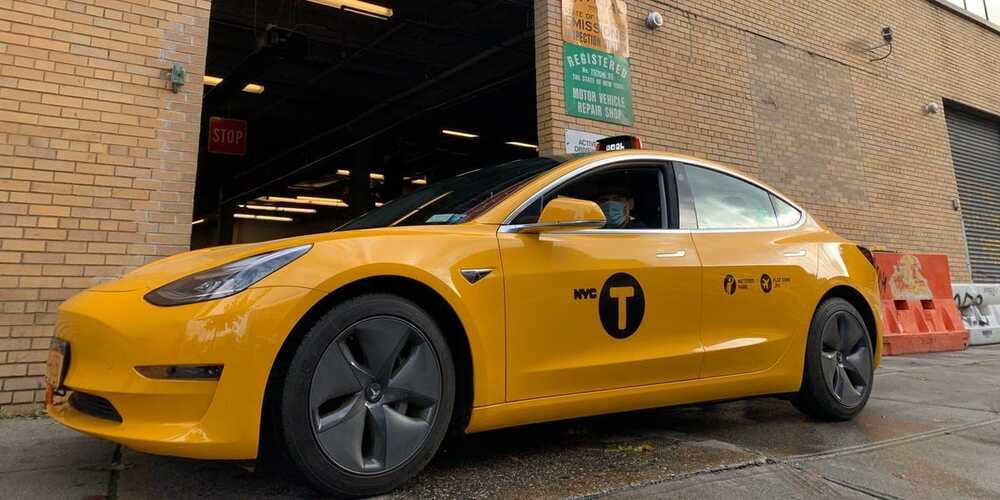
Gonzalez thinks that Tesla taxis could help reinvigorate the city’s yellow-cab industry, which has taken a major hit from ride-hailing services like Uber, Via, and Lyft. He also predicts that the city could, for sustainability reasons, start mandating electric cabs, so he’s looking to get ahead of the curve, even if the commercial charging infrastructure isn’t quite there yet.
Drive Sally plans to bring hundreds of Teslas to New York’s streets in the near future, but for now, the company is still working out the kinks. Gonzalez suspects that the EVs may be better suited for for-hire “black cars” than yellow cabs, and he also said that the more-spacious Model Y would likely work better as a cab than the Model 3, but they’re still too expensive.
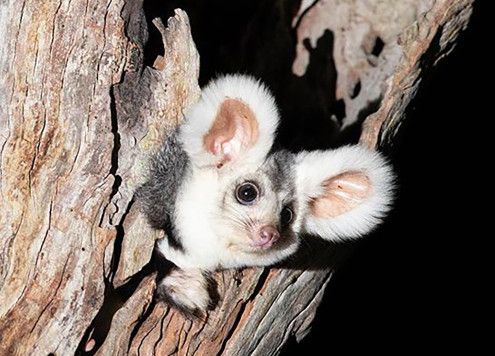
Australian researchers have identified two new mammals in the Land Down Under — both cousins of the doe-eyed flying marsupials known as greater gliders, according to a report.
A study published in Nature’s Scientific Reports journal found two new distinct and smaller species of gliders in northern and central Australia, outside of the marsupial’s known habitat in the country’s southern end, the Sydney Morning Herald reported.
“Australia’s biodiversity just got a lot richer,” Andrew Krockenberger, a professor at James Cook University and a co-author of the study, told the outlet. “It’s not every day that new mammals are confirmed, let alone two new mammals.”
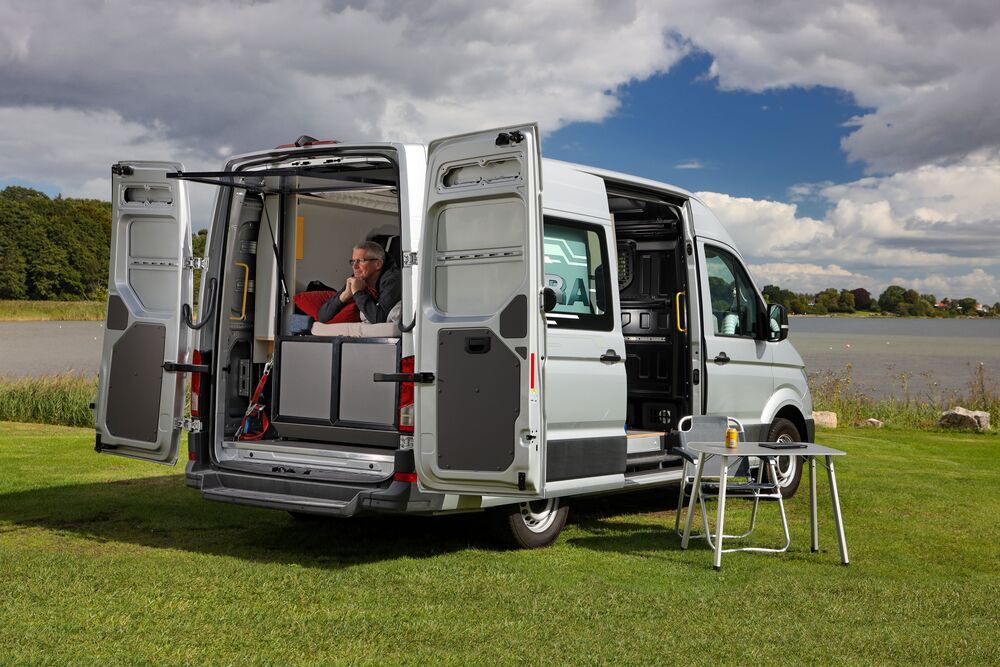
All-electric camper vans are still quite rare. Those that are available tend to be designed for camping and commuting locally, not road-tripping indefinitely. But VW fanatic Frank Eusterholz had different ideas. He threw a PlugVan camper module into the e-Crafter cargo van and hit the road … the long road. Eusterholz’s 7,500-km (4,660-mile) journey sent him highway-cruising, switchback-climbing and island-hopping across Europe, from VW van HQ Hannover, Germany to the northernmost tip of Continental Europe. His journey serves as an inspiring early look at the electric RVing possibilities that will only grow with time.
Electric camper vans have been available for years, but a practical version with enough range always seems just a few years off. Next-generation EV campers from the Rivian R1T overland truck to VW’s own ID. Buzz promise more practical ranges and capabilities, but for now e-campers remain limited to small, modest-range minis like the Sussex e-NV200 Camper Car.
In an announcement released last month, Volkswagen painted a different picture of electric camper van touring. It described the story of 54-year-old Frank Eusterholz, a longtime EV driver determined not to let the modest ranges of contemporary electric vans deter him from EV van life. A resident of Samsø, a Danish island that’s been committed to sustainable energy for decades, Eusterholz considered the e-Crafter a natural vehicle choice, and the perfect camper base.

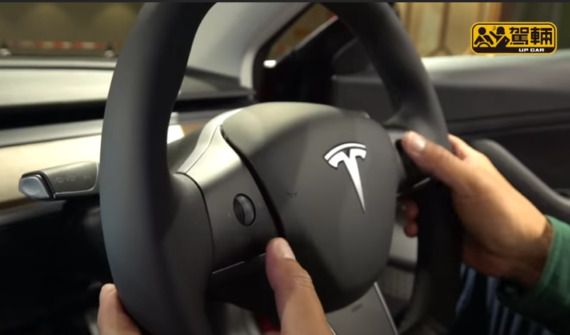
A new version of Tesla’s Model 3 has arrived in Hong Kong. Driving UpCar shared a first look at it on YouTube. DDcar also reported that Hong Kong Tesla has officially brought the new 2021 Model 3 into the K11 Mall in Tsim Sha Tsui for public display. This batch of Model 3 cars was made in the Fremont factory and is expected to have basically the same configuration around the world.
Some of the changes discussed in the video include a minor change in the headlights, new design on the wheels, all-black trim, and door handles, of which they say, “I believe it’s not that easy to leave a fingerprint on them now.”

What happens when you put two pilots to work flying a drone that has been designed specifically to plant trees at a rapid pace? You could potentially get up to 100,000 trees planted per day. That’s an astounding number compared to an average 11,000 trees that are currently being planted by professional tree planters on a weekly basis.

It seems solar power is really benefiting these chicken farmers from Australia. It allows them to slash their electricity bill.
This 10-million-bird chicken farm has slashed its power bill and reduced its CO2 emissions by 1,500 tonnes after installing one of agriculture’s most extensive solar and battery systems.